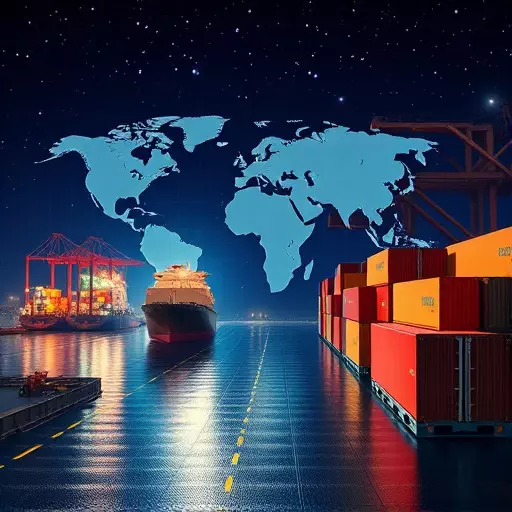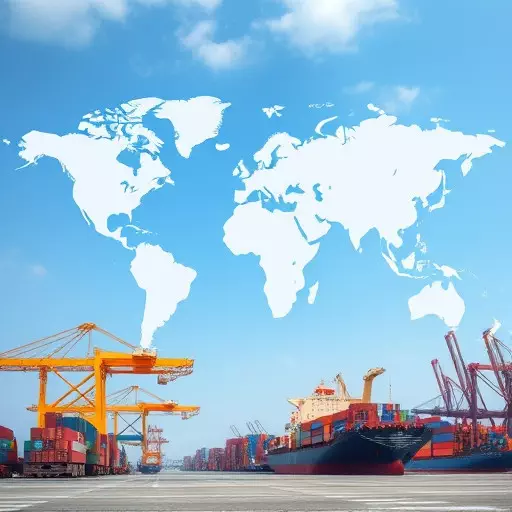Businesses engaging in international trade must navigate stringent global shipping regulations, especially ISPM-15 compliance for wood packaging, to avoid penalties, maintain reputations, and contribute to a sustainable network. Non-compliance leads to delays, fines, and route bans. Staying informed about evolving standards, including packaging, documentation, and fuel efficiency, is crucial for competitiveness. In Holland, Ohio, adhering to international shipping standards ensures environmental safety, prevents pest spread, and fosters trust among trading partners. Proactive monitoring, internal processes, training, and advanced technologies streamline compliance, offering businesses a competitive edge in the global market while aligning with best practices worldwide.
In today’s globalized world, energy-efficient shipping is not just an environmental consideration but a critical aspect of international trade. Understanding and adhering to global shipping regulations, such as ISPM-15 for wood packaging, is essential for businesses in Holland, Ohio, and beyond. This article explores the impact of global shipping standards, provides a step-by-step guide to compliance, highlights its benefits, and offers strategies for continuous improvement, ensuring your operations stay ahead of the curve.
- Understanding Global Shipping Regulations and Their Impact
- Introduction to ISPM-15: A Key Standard for Wood Packaging
- Navigating International Shipping Standards Compliance: A Step-by-Step Guide
- Benefits of Achieving Compliance in Holland, Ohio, and Beyond
- Strategies for Continuous Improvement and Staying Ahead of the Curve
Understanding Global Shipping Regulations and Their Impact
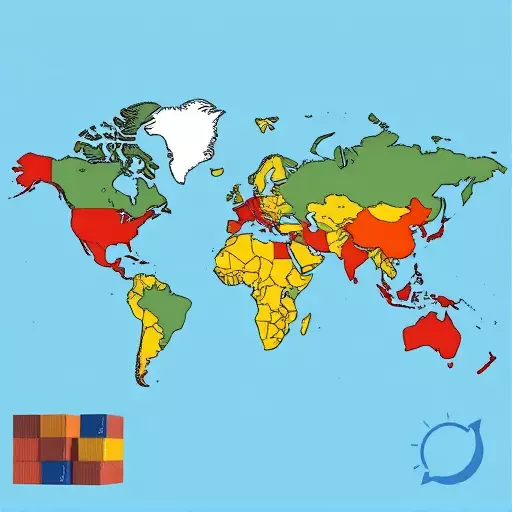
Navigating global shipping regulations is paramount for businesses involved in international trade. With evolving standards like ISPM-15 compliance, ensuring adherence to international shipping standards in Holland, Ohio, or anywhere else, is essential to avoid penalties and maintain a positive reputation. These regulations are designed to mitigate environmental impacts, enhance safety, and streamline customs processes worldwide.
Non-compliance can lead to delays at ports, hefty fines, and even bans on certain shipping routes. Staying informed about the latest global shipping regulations, including those related to packaging, documentation, and fuel efficiency, is crucial for shippers looking to remain competitive in the international market. By adhering to these standards, businesses contribute to a more sustainable and efficient global transportation network.
Introduction to ISPM-15: A Key Standard for Wood Packaging
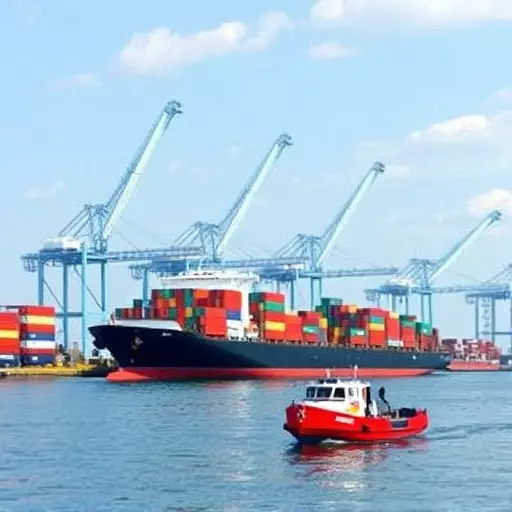
The global shipping industry is subject to a plethora of regulations aimed at ensuring safety and sustainability. Among these, the International Standard for Wood Packaging Material (ISPM-15) stands out as a cornerstone standard, particularly relevant for international shipping standards compliance in Holland, Ohio, and worldwide. ISPM-15 outlines critical requirements for wood packaging materials used in global shipping regulations, focusing on preventing the spread of pests and plant diseases.
Compliance with ISPM-15 is not just a regulatory obligation but also a strategic decision for companies involved in international shipping. This standard ensures that wood packaging materials are treated and certified to be free from harmful organisms, thereby safeguarding both the environment and the health of plants and animals at destination points. Understanding and adhering to ISPM-15 guidelines can help businesses avoid costly delays, penalties, and potential damage to their reputation associated with non-compliance in the global shipping market.
Navigating International Shipping Standards Compliance: A Step-by-Step Guide
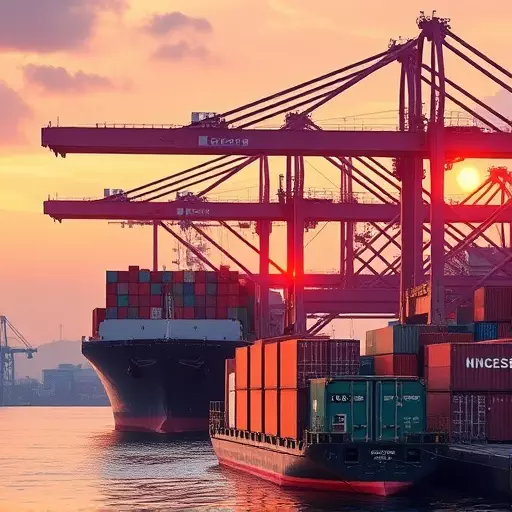
Navigating International Shipping Standards Compliance can seem daunting, but with a clear step-by-step approach, companies in Holland, Ohio, and beyond can ensure adherence to global shipping regulations. The first step is to understand the relevant international shipping standards, such as ISPM 15 compliance for wood packaging material. This involves thoroughly researching and familiarizing oneself with the specific requirements outlined by organizations like the International Plant Protection Organization (IPPO).
Next, companies should implement robust internal processes to meet these standards. This includes establishing a dedicated team responsible for monitoring and updating compliance procedures, regularly training employees on relevant regulations, and integrating compliance checks into every stage of the shipping process. Additionally, utilizing advanced technologies, such as digital documentation and real-time tracking, can enhance efficiency while ensuring adherence to global shipping regulations.
Benefits of Achieving Compliance in Holland, Ohio, and Beyond

Achieving compliance with international shipping standards, such as ISPM 15 in Holland, Ohio, brings significant advantages for businesses involved in global trade. By adhering to these stringent regulations, companies can ensure their shipments are secure and environmentally sustainable. This is particularly crucial in the highly regulated global shipping industry, where non-compliance can result in costly delays and penalties.
Beyond Holland and Ohio, complying with global shipping regulations is essential for maintaining a competitive edge in international markets. It fosters trust among trading partners, reduces potential risks, and promotes efficient logistics operations. As businesses expand globally, meeting these standards becomes a cornerstone of successful and responsible international shipping practices.
Strategies for Continuous Improvement and Staying Ahead of the Curve

In the dynamic landscape of global shipping, staying ahead of regulatory curves is paramount for businesses aiming for both compliance and efficiency. One key strategy involves continuous monitoring and adaptation to evolving international shipping standards and regulations, such as ISPM-15 compliance requirements in North America, specifically within Ohio’s bustling ports. Regular updates on global shipping regulations are essential, as they often reflect the latest environmental and safety concerns. By keeping a step ahead, companies can avoid costly penalties and ensure their operations align with emerging best practices worldwide.
Additionally, implementing robust systems for data tracking and analysis empowers businesses to identify areas for improvement. Leveraging technology for real-time monitoring of energy consumption, carbon emissions, and other key performance indicators (KPIs) allows for data-driven decisions. This proactive approach fosters a culture of continuous improvement, enabling shipping companies to stay competitive in the market while meeting or exceeding environmental standards, including those set by global shipping regulations and local initiatives like those found in Holland, Ohio.

